Khalid M. Mosalam
Sustainability & resiliency of structures
723 Davis Hall
TuTh 11:15-12:15 (CE221), MW 10:00-11:00 (CE123) or by appointment via email request.
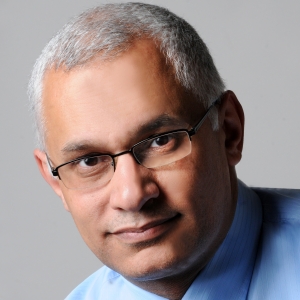
Khalid M. Mosalam is the Taisei Professor of Civil Engineering and the Director of the Pacific Earthquake Engineering Research (PEER) Center at UC Berkeley. Mosalam’s research focuses on the performance and health monitoring of structures, assessment, and rehabilitation of essential facilities (i.e., bridges and electrical substations), large-scale computations and experiments, including hybrid simulation, and building energy efficiency and sustainability. In support of his research activities, Mosalam has conducted research in the past 38 years with funding from NSF, Caltrans, FEMA, Intel, US-DOE, NRF-Singapore, and several private industries. He is the recipient of EERI best student paper in Earthquake Engineering in 1996; Walter L. Huber civil engineering research prize in 2006; Robert G. Drysdale best paper award on Masonry Research or Education in 2009; UC-Berkeley chancellor award for public services in 2013; CEE distinguished lecture, Western University, Canada in 2015; EERI outstanding paper award in 2015; ASCE best journal paper in Materials and Structural Response in 2020; Hojjat Adeli award for innovation in computing, Wiley-Blackwell in 2021; ASCE editor’s choice section of the Journal of Infrastructure Systems in 2024, inducted into the Academy of Engineering of Mexico (Academia de Ingeniería Mexico) as a corresponding member in 2020, elected fellow of the ASCE in 2020; among other notable achievements.
Mosalam was a visiting professor at Kyoto University (Japan), METU (Turkey), Tongji University (Choin), and NTU (Singapore). Please see Mosalam's full list of Publications, Awards, Teaching, CV, and Student information.
Ph.D., Civil Engineering, Cornell University, 1996
M.S., Structural Engineering, Cairo University, 1991
B.S. (Honors)., Civil Engineering, 1988
Mosalam’s research focuses on modeling the structural response of reinforced concrete (RC), masonry, and wood structural systems subjected to severe loading conditions due to major earthquakes, blasts or wind gusts. The common feature of these structural systems is the complexity of the response due to nonlinear quasi-brittle material behavior. Moreover, the interaction between dissimilar structural components adds to the complexity of the system response. Reliable and efficient computational models supplemented by experimental evidence for accurate prediction of the structural response and for the development of retrofitting techniques are the ultimate goal of his research. Mosalam’s current research projects include activities related to energy efficiency in buildings and the use of machine learning tools for structural health monitoring. His areas of expertise also include developing tools for resilient and sustainable holistic designs of infrastructure systems. In support of his research activities, Mosalam has conducted research in the past 26 years with funding from NSF, Caltrans, FEMA, Intel, US-DOE, NRF-Singapore, and several private industries.
Watch a short KQED QUEST laboratory video:
https://www.kqed.org/quest/24405/the-shaking-table-at-uc-berkeley
https://www.youtube.com/watch?v=7hoSqazNmfY
Overall study program on RC building systems with URM infill walls

Overall study program on progressive collapse modeling of RC building systems

Overall study program on next generation hybrid simulations

Overall study program on bridge in-span hinge structural behavior and details
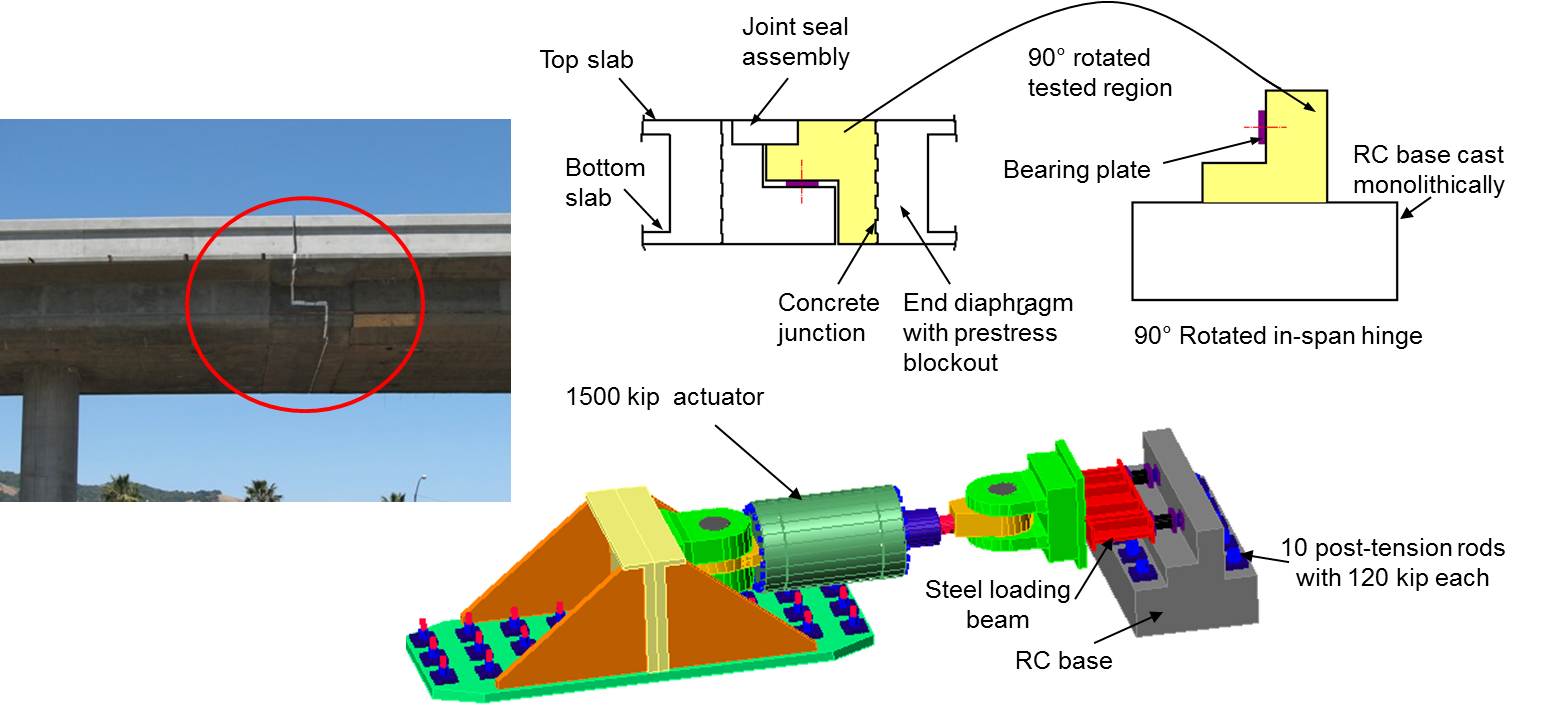
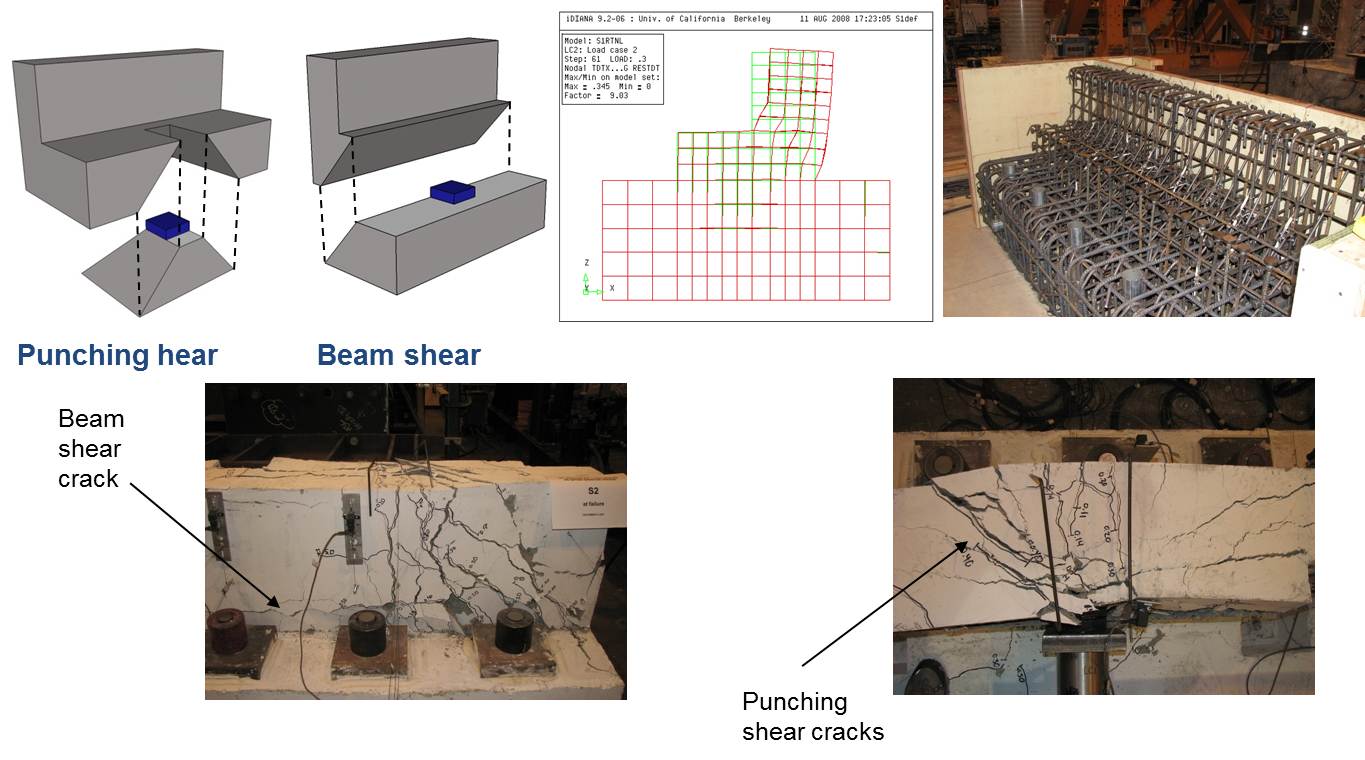
Overall study program on Building Efficiency and Sustainability in the Tropics (BEST)
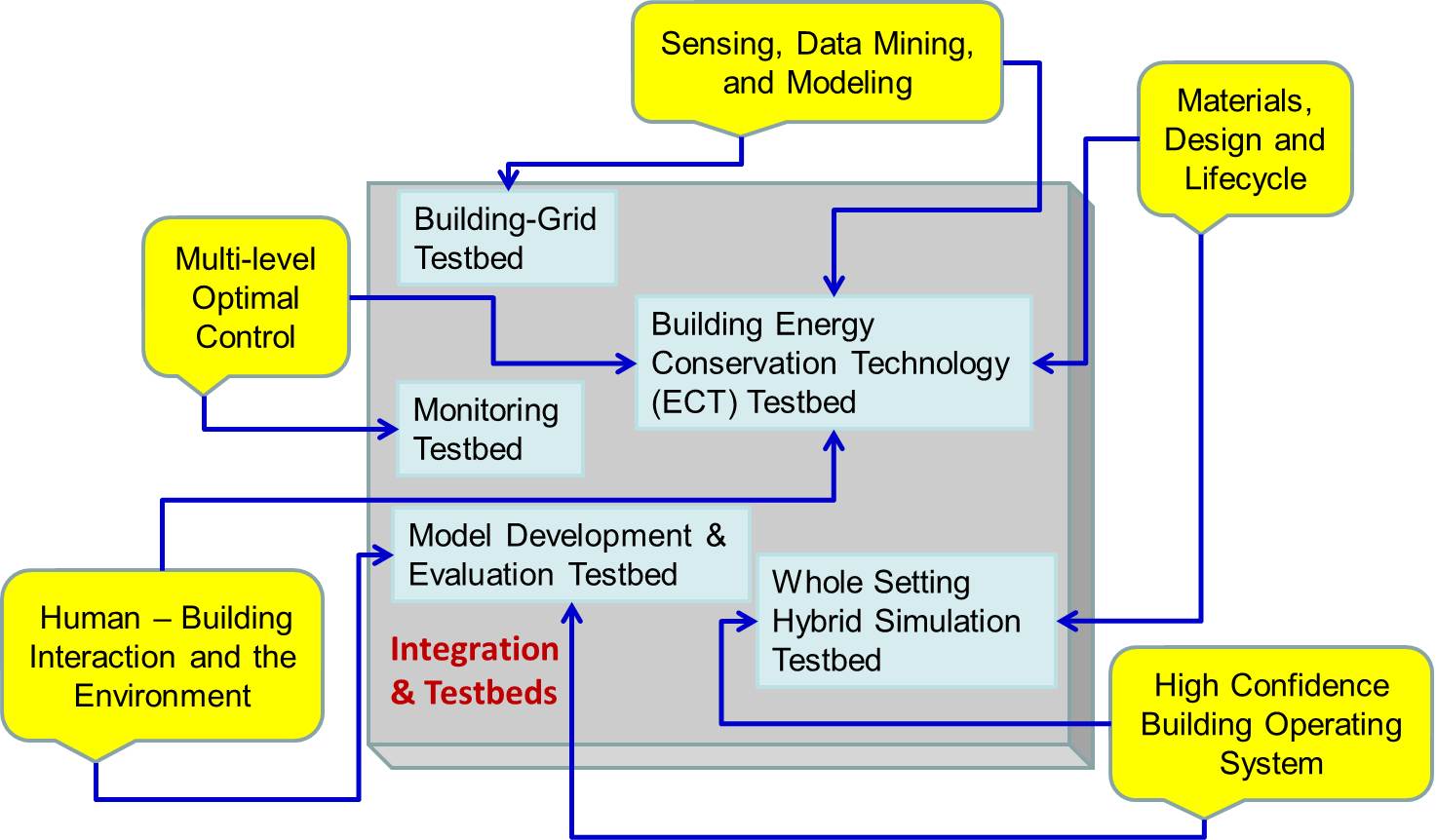
Overall of nees@berkeley equipment site activities
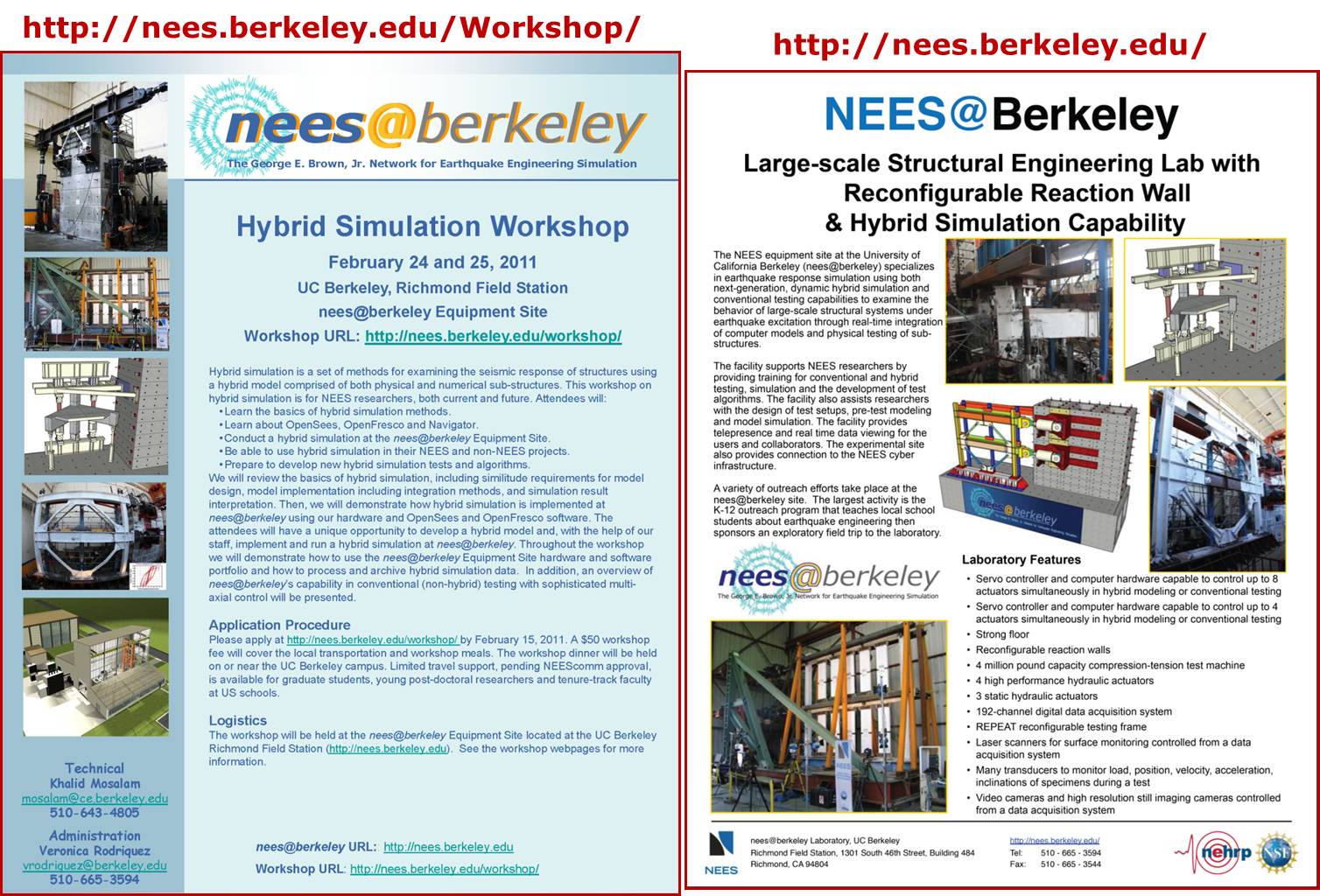
Overall of probabilistic seismic assessment: PEER formulation
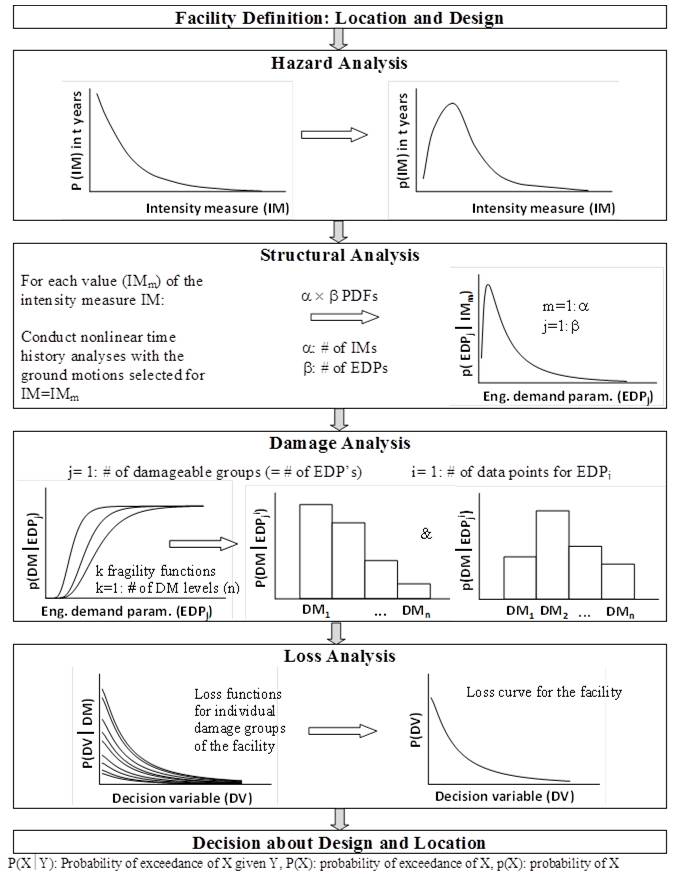
Overall study of effect of vertical acceleration on shear demand and capacity of RC bridge columns
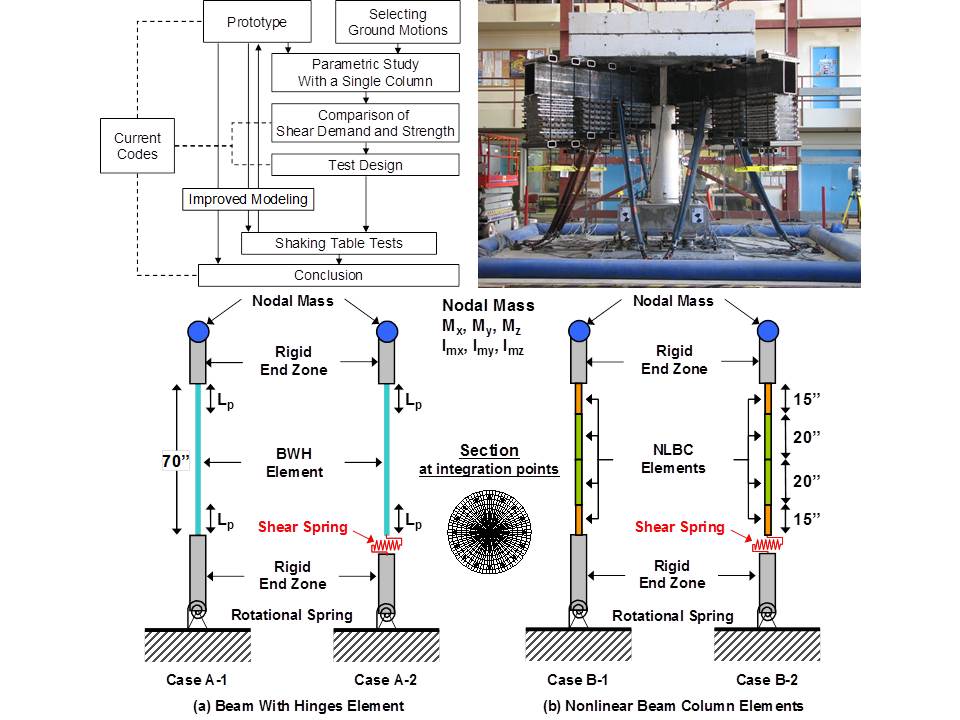
Overall study of structural health monitoring
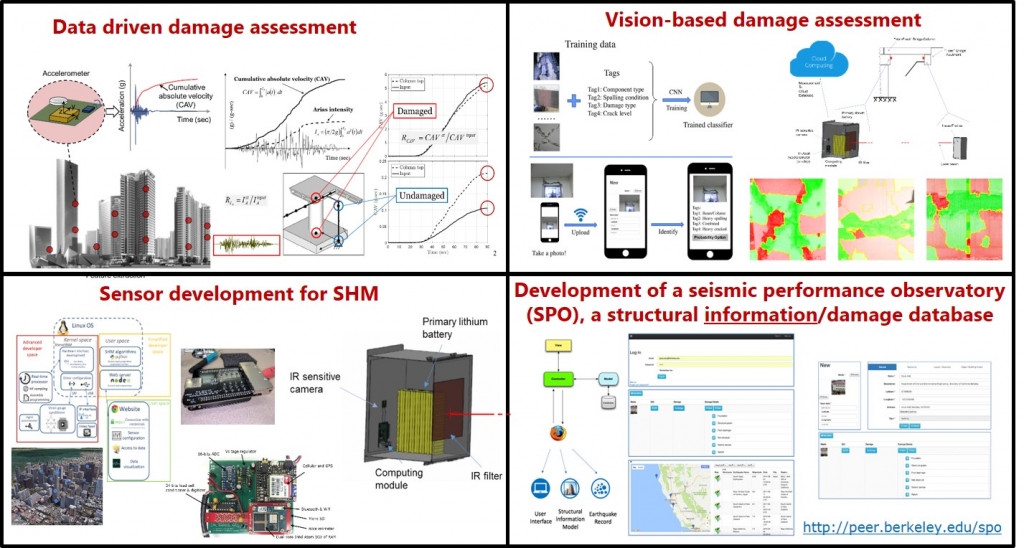
News
Spotlights
No mentions in Spotlights
Student Updates
No mentions in Student Updates


